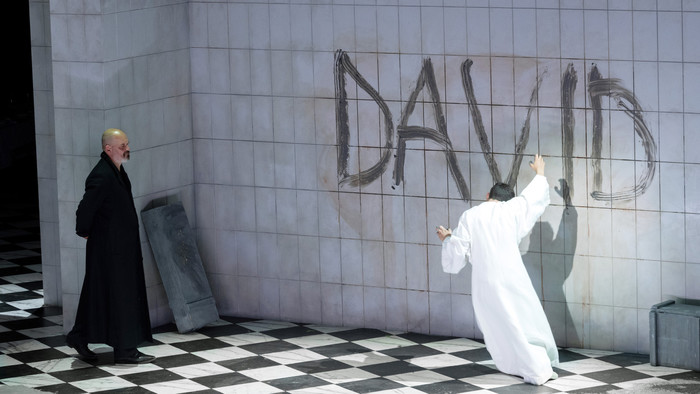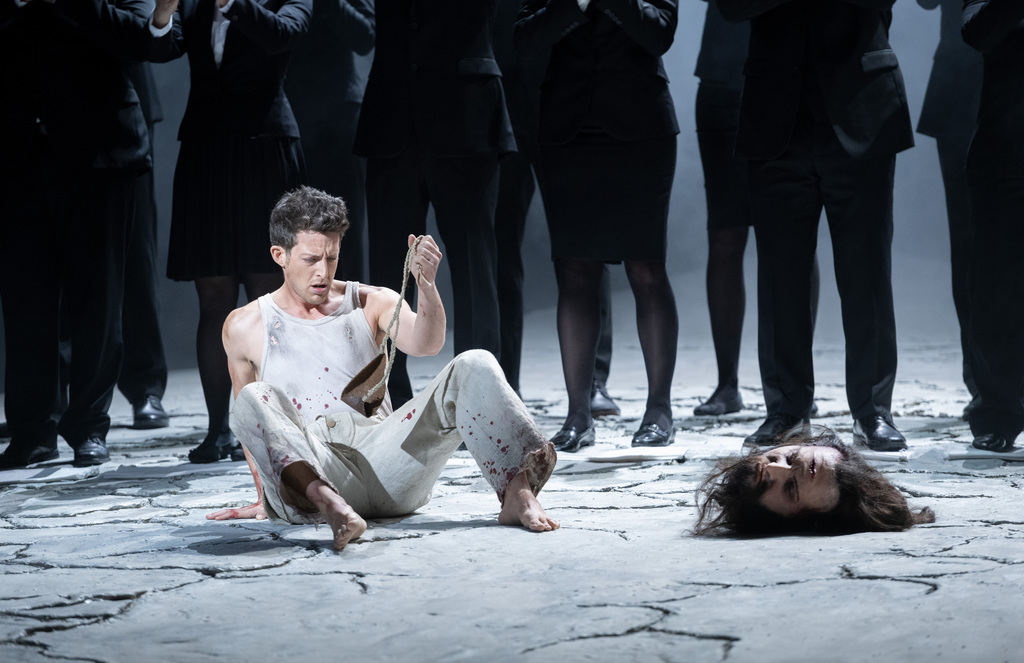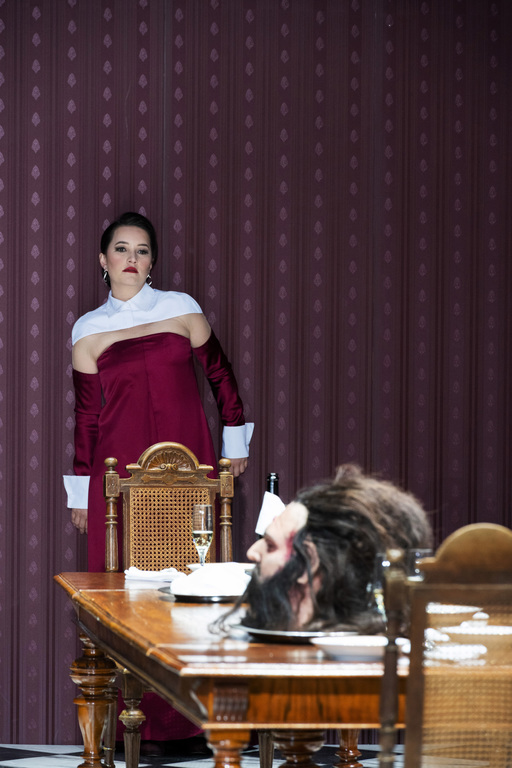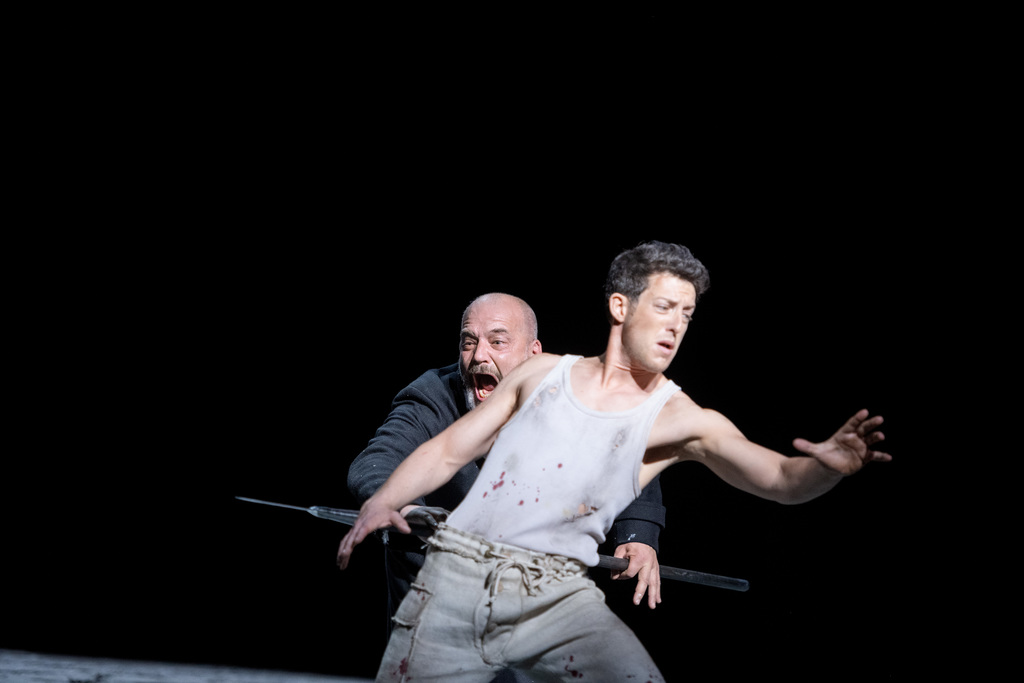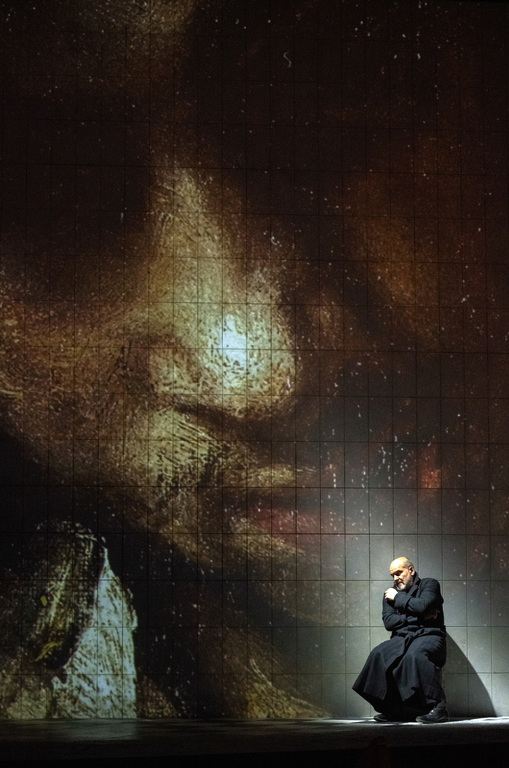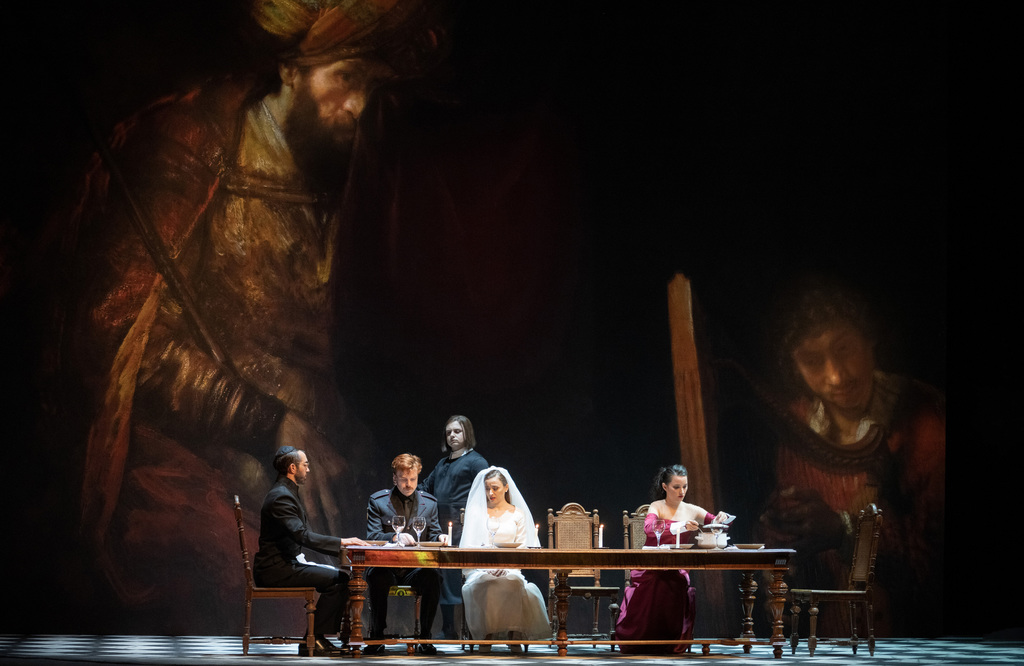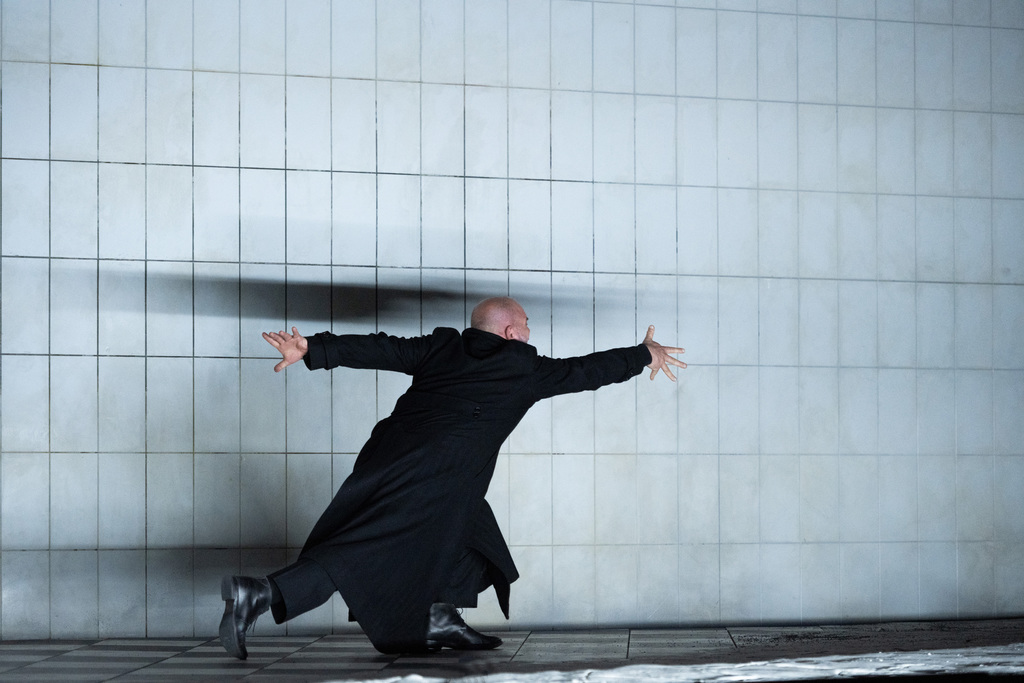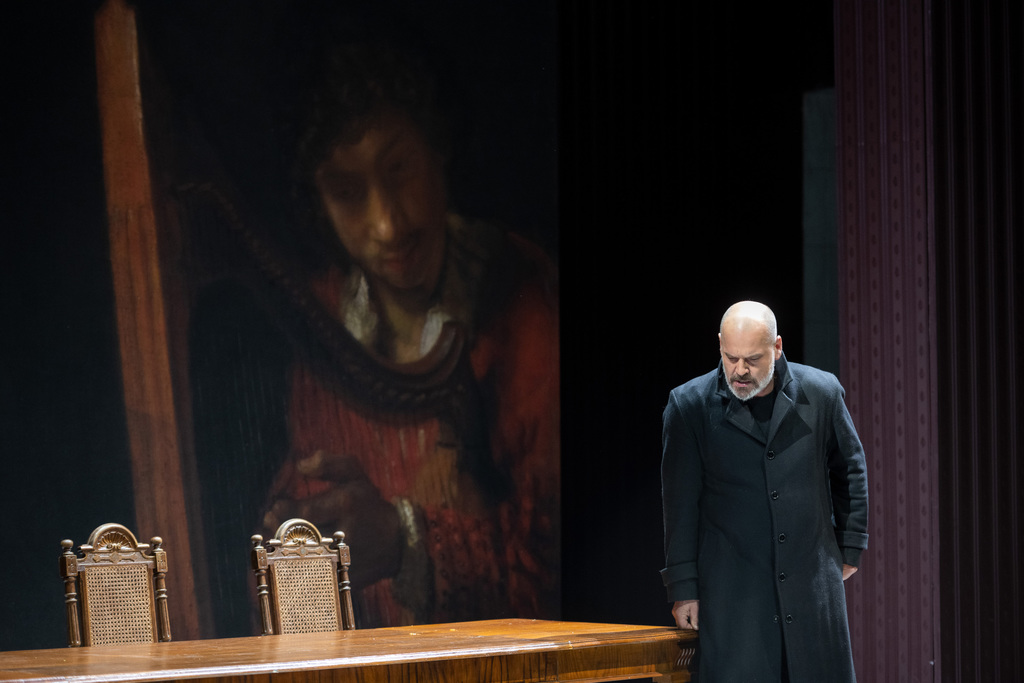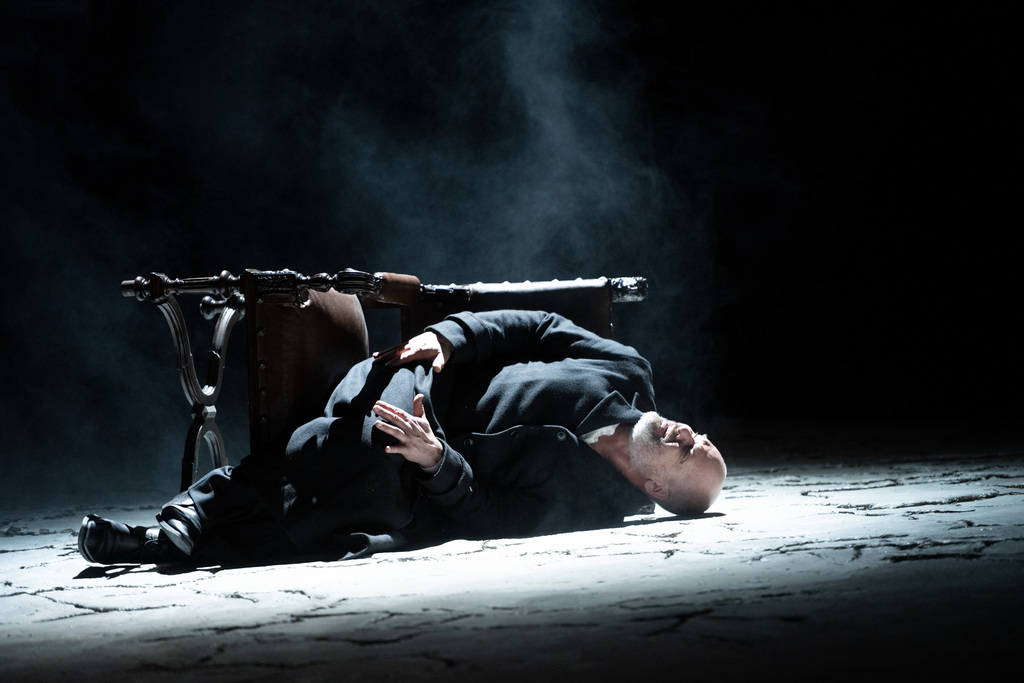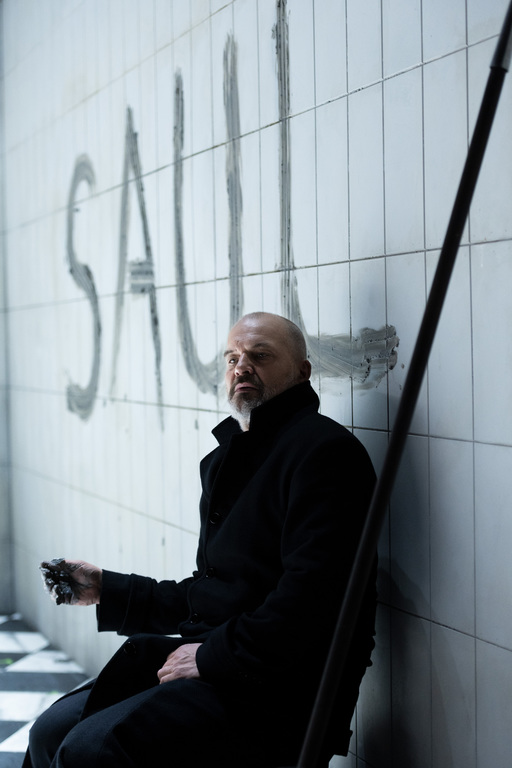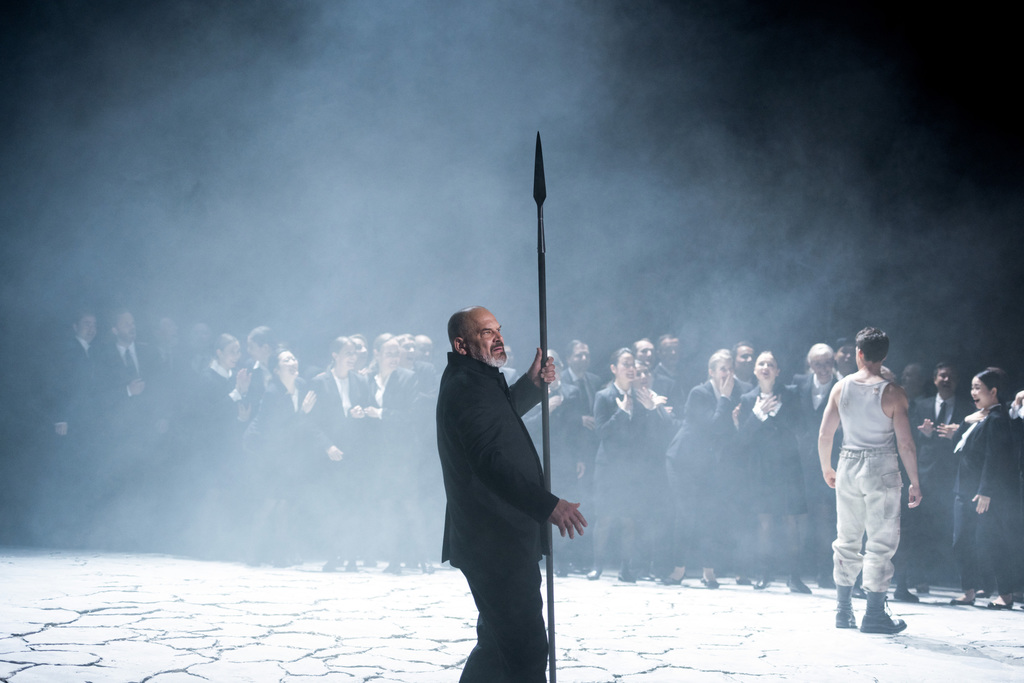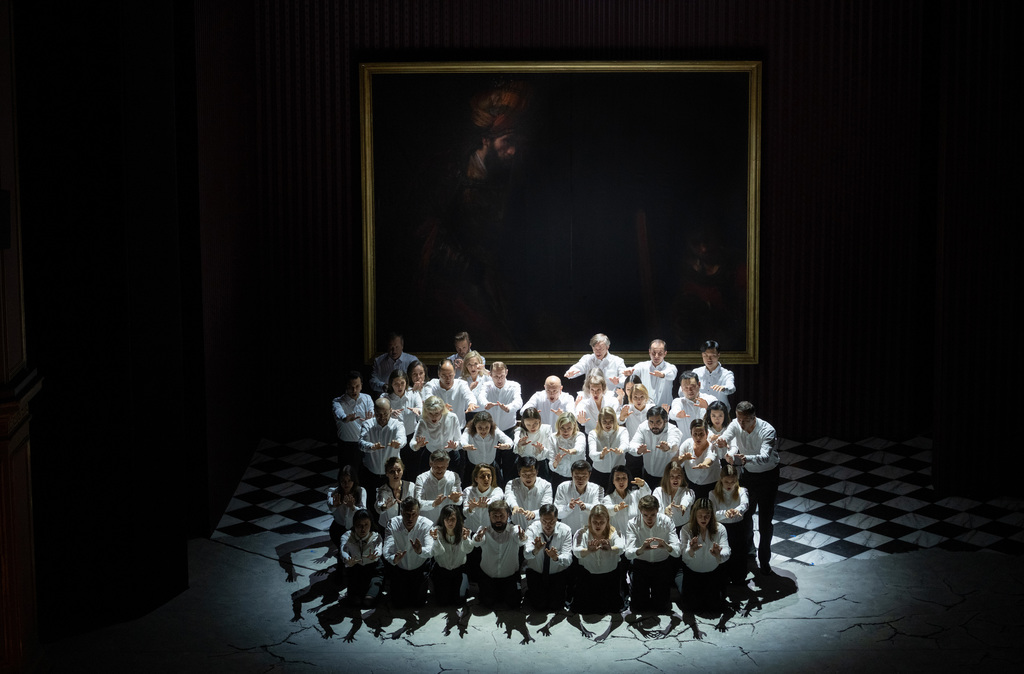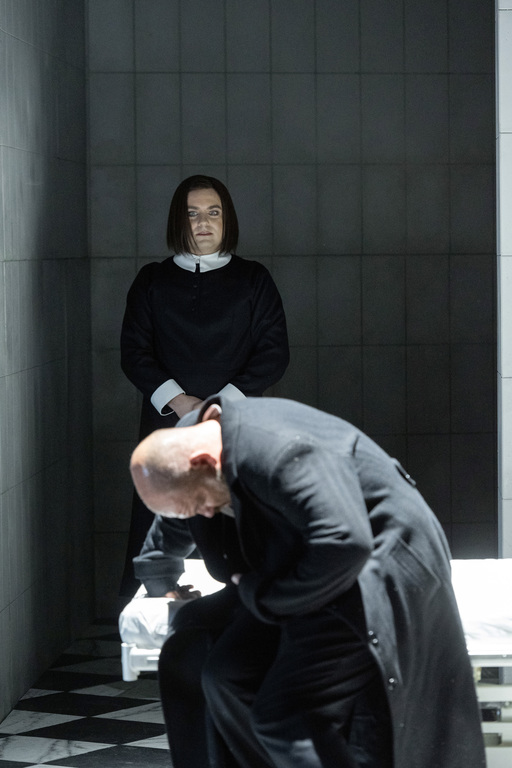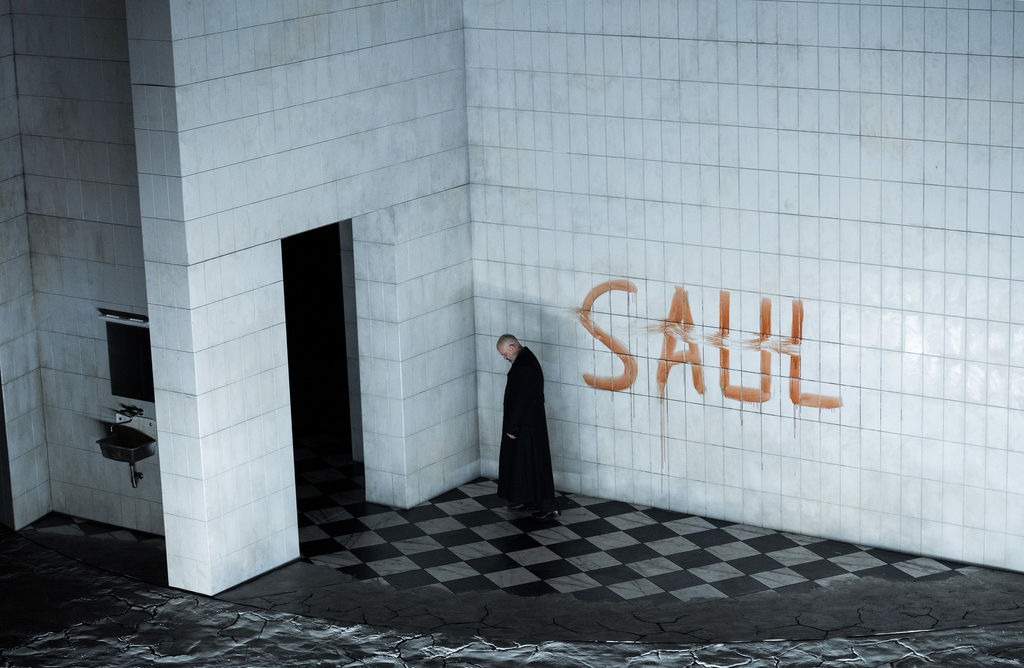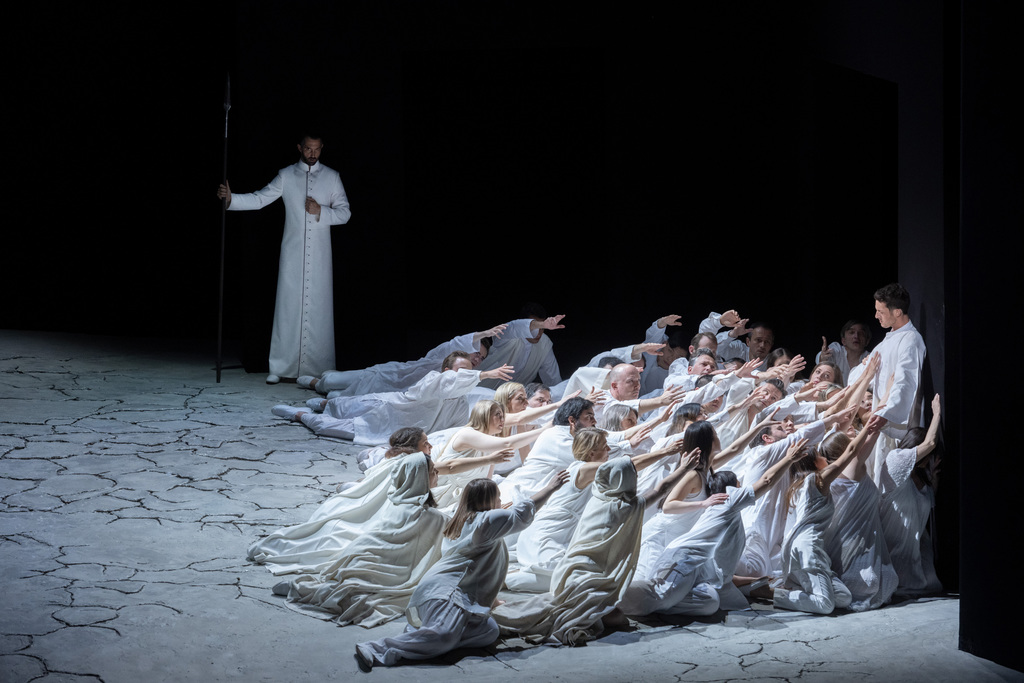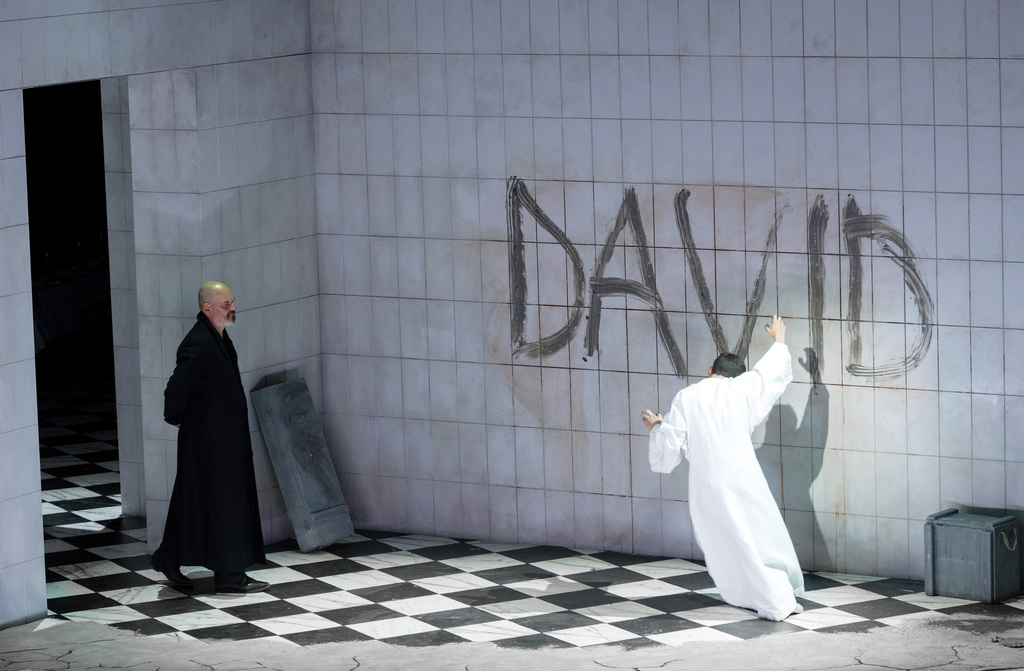Cast & Crew
Saul – Florian Boesch
Merab – Anna Prohaska
Michal – Giulia Semenzato
David – Jake Arditti
Jonathan, Saul's Son – Rupert Charlesworth
Director – Claus Guth
Conductor – Christopher Moulds
Set designer – Christian Schmidt
Description
George Frideric Handel had dominated musical life in London with his Italian-style operas ever since his sensational success with Rinaldo in 1711 – going broke twice in the process, incidentally. From the outset, however, there had been critics who demanded operas in English. By the end of the 1730s Italian operas had fallen entirely out of favour in London, so the composer looked for new ways of captivating his listeners. He began to experiment more extensively with English-language oratorios. In 1739, Saul marked the start of his new career. For Handel, oratorios in English had several advantages: He satisfied the opponents of Italian opera, did not have to pay the expensive fees commanded by Italian singing stars, and did not have to budget for opulent sets and costumes. Possibly to compensate for the lack of visuals, Handel scored Saul for remarkably rich and novel instrumentation: to begin with he used instruments that were thought at the time to have been used in the days of King David (1000 BC), such as trombones and extensive percussion. To this he added a harp, required by David’s use of one in the piece as a means of trying to soothe Saul, and a carillon, a set of bells played by striking a keyboard, that succinctly portrays Saul’s madness as the oratorio progresses. Furthermore, the structure of Saul still shows a great affinity with opera because unlike conventional oratorios there is no narrator. Instead, the characters speak to and across one another. These dramatic elements make it almost natural to present Saul not in concert form, as is traditional for an oratorio, but to think of it in terms of a staged production. In the 2017/18 season, director Claus Guth and his set designer Christian Schmidt grasped the nettle and created a highly acclaimed production that offers a lot of room for associations and thoroughly explores the titular character – just as Handel intended. The title role of the despairing King Saul who sees his power slowly diminishing will be sung by our artist in residence Florian Boesch, just as it was in 2018.
Summary
Act 1
The Israelites raise their voices in magnificent thanksgiving to God, for the young warrior David has slain the Philistine giant Goliath. At the court of King Saul, once a mighty warrior himself, all the people celebrate the hero David. Saul's son, Jonathan swears eternal devotion to David, but Saul's two daughters experience contrasting emotions – Michal is in love with David, but Merab feels contempt for him as a social inferior, a feeling that only increases when Saul offers her in marriage to David. A group of Israelite young women offer further tributes to David. King Saul is enraged at the way David is praised. Unable to restrain his anger, he orders Jonathan to kill David.
Act 2
The people of Israel reflect on the destructive power of envy. Jonathan pleads David's case to Saul, who appears to relent. Saul asks Jonathan to bring David back to court and promises Michal as David's bride, though Saul anticipates David's death in battle. David and Michal express their mutual love, but David reports that Saul's rage has not diminished and that Saul threw a javelin close past his head in frustration. Saul summons David to court again as both Michal and Merab express their faith that God will protect David. Jonathan tries to explain to Saul why David has not responded to his summons. Saul rages against both David and Jonathan.
Act 3
In despair, and though aware it is unlawful, Saul asks the Witch of Endor to raise the ghost of Samuel the prophet. Asked for advice, the ghost of Samuel reminds Saul that he had once predicted his downfall for sparing the king of the Amalekites whom Samuel had ordered killed. He predicts that David will inherit the kingdom of Israel when Saul and his sons die in the next day's battle. David learns from an Amalekite soldier of the deaths of Saul and Jonathan at the hands of the Amalekites, and David orders the Amalekite killed. After a funeral march for the Israelite dead, Merab, David, and Michal each in turn express their sorrow, particularly for the loss of Jonathan. A high priest predicts David will win future victories and the Israelites urge him to restore their kingdom.
The Israelites raise their voices in magnificent thanksgiving to God, for the young warrior David has slain the Philistine giant Goliath. At the court of King Saul, once a mighty warrior himself, all the people celebrate the hero David. Saul's son, Jonathan swears eternal devotion to David, but Saul's two daughters experience contrasting emotions – Michal is in love with David, but Merab feels contempt for him as a social inferior, a feeling that only increases when Saul offers her in marriage to David. A group of Israelite young women offer further tributes to David. King Saul is enraged at the way David is praised. Unable to restrain his anger, he orders Jonathan to kill David.
Act 2
The people of Israel reflect on the destructive power of envy. Jonathan pleads David's case to Saul, who appears to relent. Saul asks Jonathan to bring David back to court and promises Michal as David's bride, though Saul anticipates David's death in battle. David and Michal express their mutual love, but David reports that Saul's rage has not diminished and that Saul threw a javelin close past his head in frustration. Saul summons David to court again as both Michal and Merab express their faith that God will protect David. Jonathan tries to explain to Saul why David has not responded to his summons. Saul rages against both David and Jonathan.
Act 3
In despair, and though aware it is unlawful, Saul asks the Witch of Endor to raise the ghost of Samuel the prophet. Asked for advice, the ghost of Samuel reminds Saul that he had once predicted his downfall for sparing the king of the Amalekites whom Samuel had ordered killed. He predicts that David will inherit the kingdom of Israel when Saul and his sons die in the next day's battle. David learns from an Amalekite soldier of the deaths of Saul and Jonathan at the hands of the Amalekites, and David orders the Amalekite killed. After a funeral march for the Israelite dead, Merab, David, and Michal each in turn express their sorrow, particularly for the loss of Jonathan. A high priest predicts David will win future victories and the Israelites urge him to restore their kingdom.
Screenings
- Almaty
- Arkhangelsk
- Chelyabinsk
- Cherepovets
- Fryazino
- Gelendzhik
- Irkutsk
- Ivanovo
- Kaliningrad
- Kazan
- Khabarovsk
- Krasnodar
- Krasnoyarsk
- Lipetsk
- Minsk
- Moscow
- Nizhnevartovsk
- Nizhny Novgorod
- Novokuznetsk
- Novosibirsk
- Omsk
- Penza
- Perm
- Petropavlovsk-Kamchatskiy
- Petrozavodsk
- Pskov
- Rostov-on-Don
- Ryazan
- Saint Petersburg
- Samara
- Saratov
- Sergiyev Posad
- Severodvinsk
- Sochi
- Syktyvkar
- Taganrog
- Tolyatti
- Tomsk
- Tver
- Tyumen
- Ufa
- Veliky Novgorod
- Vladivostok
- Volgograd
- Voronezh
- Yaroslavl
- Yekaterinburg
Runtime
2 h. 48 min.
Language
Recorded screening: English, russian subtitles
18+
